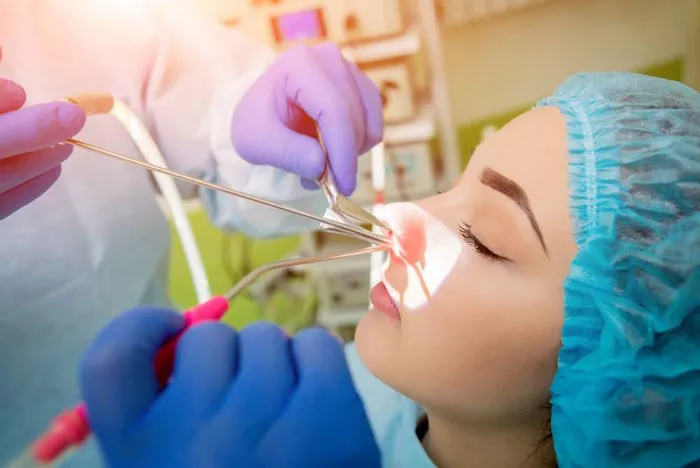Rhinoplasty, commonly known as a nose job, is a surgical procedure that reshapes the nose to improve its appearance or function. Post-operative care is crucial for ensuring optimal healing and results. One of the key aspects of recovery is knowing when and how to resume facial care routines. This article provides a comprehensive guide on the timeline and considerations for facial care after rhinoplasty.
Understanding Rhinoplasty Recovery
Initial Recovery Phase
The initial recovery phase lasts about 1-2 weeks. During this time, the nose is highly sensitive and delicate. Swelling, bruising, and discomfort are common. It is crucial to follow the surgeon’s instructions meticulously to avoid complications.
Healing Timeline
First Week: The nose is typically splinted to support its new shape. Swelling and bruising are most pronounced during this period.
Second to Fourth Week: Swelling begins to subside, and the bruising fades. The nasal splint is usually removed after the first week.
First Three Months: Significant healing occurs, with most swelling dissipating. The nose starts to take its new shape.
Up to One Year: Final results become evident as minor swelling continues to resolve.
Resuming Facial Care Post-Rhinoplasty
First Week: Minimal Touch
During the first week post-surgery, facial care should be minimal to avoid disturbing the surgical site. It is crucial to keep the nasal splint dry and avoid any pressure on the nose.
Cleansing: Use a gentle, non-irritating cleanser. Avoid getting the nasal splint wet.
Moisturizing: Apply a light, non-comedogenic moisturizer carefully around the face, avoiding the nose area.
Sun Protection: If going outside, use a broad-spectrum sunscreen on exposed areas of the face.
See Also: 6 Reasons You Should Not Blow Your Nose After Rhinoplasty
Second Week: Gentle Cleansing
As the nasal splint is removed, facial care can be slightly more comprehensive but still gentle.
Cleansing: Continue using a gentle cleanser. You can now cleanse the nose area lightly with a soft cloth.
Moisturizing: Moisturize the entire face, including the nose, with a fragrance-free, non-comedogenic product.
Avoid Scrubs: Do not use exfoliating scrubs or products that require rubbing or massaging the skin.
Third to Fourth Week: Incremental Care
During this period, as swelling continues to decrease, you can gradually resume more aspects of your facial care routine.
Cleansing: Use your regular gentle cleanser. Be cautious around the nose.
Moisturizing: Maintain moisturizing the entire face, ensuring hydration without heavy products.
Masks and Treatments: Avoid any harsh facial masks or treatments that could irritate the skin or put pressure on the nose.
One to Three Months: Gradual Return to Normal Routine
By the end of the first month, most of the initial healing is complete. You can start returning to your normal facial care routine with some precautions.
Cleansing: Continue with gentle cleansing. Avoid vigorous scrubbing or pressure.
Exfoliation: Gentle exfoliation can be reintroduced. Opt for mild chemical exfoliants over physical scrubs.
Facial Treatments: Light, non-invasive treatments can be considered with the approval of your surgeon.
Three to Six Months: Normal Routine with Caution
As the nose continues to heal, you can resume most of your regular facial care activities with caution.
Cleansing and Exfoliation: Regular cleansing and exfoliation can be resumed. Avoid aggressive products or techniques.
Facial Massages: Light facial massages can be considered if approved by your surgeon.
Professional Treatments: Consult your surgeon before undergoing any professional facial treatments.
Six Months to One Year: Full Routine
By this stage, most of the healing is complete, and the nose has largely settled into its new shape. You can typically return to your full facial care routine.
Cleansing and Exfoliation: Full return to regular cleansing and exfoliation.
Facial Treatments: Most non-invasive treatments are safe. Always consult with your surgeon for invasive procedures.
Long-Term Care: Continue using sunscreen to protect the skin and the nose from UV damage.
Special Considerations for Facial Care Products
Ingredients to Avoid
Certain ingredients can be harmful during the recovery period. It is essential to avoid:
Retinoids: These can be too harsh for healing skin.
Alcohol-Based Products: These can dry out and irritate the skin.
Fragrances: These can cause irritation and allergic reactions.
Recommended Products
Opt for products that are:
Gentle: Non-irritating and formulated for sensitive skin.
Hydrating: To maintain moisture without clogging pores.
Fragrance-Free: To minimize the risk of irritation.
The Importance of Sun Protection
Sun protection is critical after rhinoplasty. The skin is more sensitive to UV damage, and sun exposure can lead to hyperpigmentation and prolonged swelling.
Sunscreen: Use a broad-spectrum sunscreen with at least SPF 30. Reapply regularly.
Hats and Sunglasses: Wear hats and sunglasses to provide additional protection.
Professional Advice and Follow-Up
Regular Follow-Up Appointments
Regular follow-up appointments with your surgeon are crucial. They monitor the healing process and address any concerns.
Consulting with a Dermatologist
Consider consulting a dermatologist for personalized skincare advice post-rhinoplasty. They can recommend products and treatments suitable for your skin type and healing stage.
Conclusion
Resuming facial care after rhinoplasty requires patience and caution. Following a gradual and gentle approach ensures optimal healing and results. Always prioritize your surgeon’s advice and be mindful of your skin’s sensitivity during the recovery period. By taking proper care, you can enjoy both the aesthetic and functional benefits of your rhinoplasty.
Related topics:

